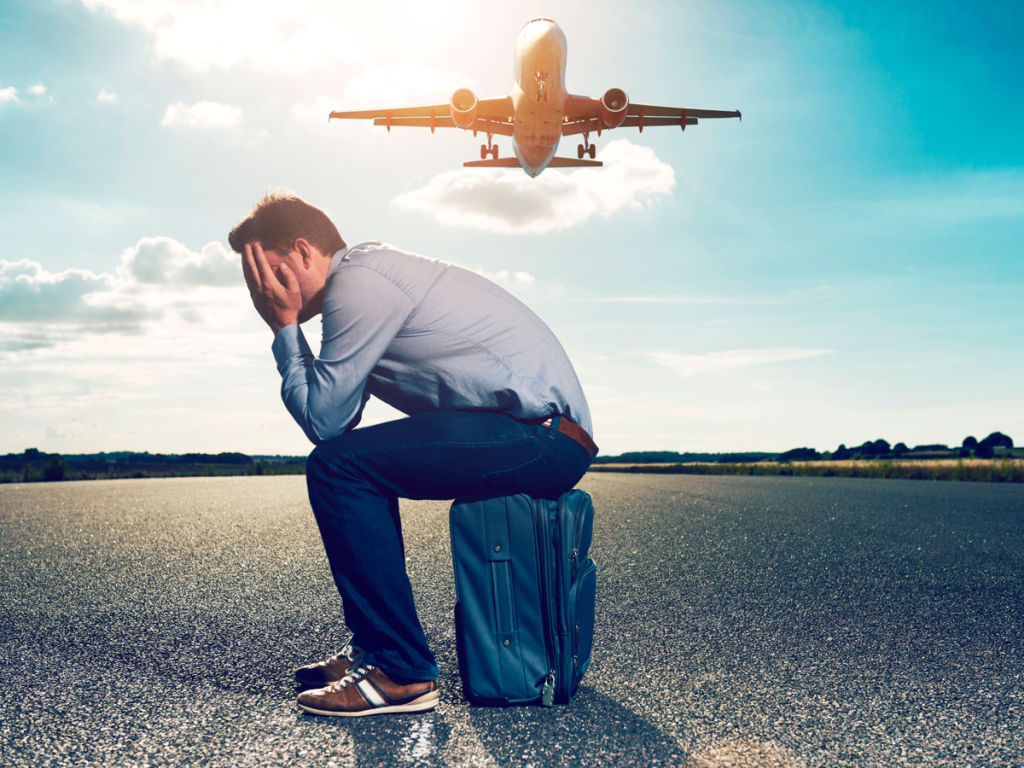How to: Avoid getting jet lag

There’s nothing like escaping the glacial greys of a Melbourne winter for a destination brimming with long summer days, sunshine and hopefully the prospect of pain au chocolat or palm trees.
The bad thing about schlepping to the other, much warmer, side of the world? There’s one free inclusion in your long-haul flight that’s almost impossible to avoid: jet lag.
So what is jet lag – and is there any way to avoid it?
Professor Stephen Simpson, director of The University of Sydney’s Charles Perkins Centre, knows a thing or two about it.
He’s helping to lead a world-first collaboration with Qantas, aiming to make long haul flying as painless as possible, following the launch of the airline’s 17-hour non-stop flight from Perth to London in March.
Professor Simpson says there are two main aspects to being on an aeroplane for a long period of time and “feeling less than 100 per cent.”
One of them is sheer fatigue and dehydration, especially after sitting hunched up for hours on end.
“But the fundamental problem, and the real cause of jet lag is your body clock system is simply unable to set itself from your destination time zone to your arrival time zone in one jump,” he says.
“Whereas you can set your wristwatch to London time having left Perth, and you can do that very easily, your body clock can’t do it in one go.
“It takes several days before it catches up, and the reason for that is your body clock system can only shift about an hour and a half a day, that’s its limit.”
He says there is a “master-clock” in our brain that controls what’s happening in our body over a 24-hour period. It receives signals from the environment, such as light, temperature, when and what you’re eating, and when you’re exercising to set itself.
His team has studied jet lag to help Qantas design everything from the cabin lighting, to the temperature on board and a jet lag-friendly menu eaten at a time to help begin resetting your body clock.
But what can you do yourself to help yourself?
“The first thing you can do is prepare before you go by shifting yourself, say, a half hour in the right direction the day or two before you leave,” Professor Simpson says.
“You get up a bit earlier, go to bed a bit later for whatever direction you’re going (for example if you’re flying from Melbourne to Vancouver, begin edging towards Vancouver time).”
He recommends trying to get a good night’s sleep before your flight, and aiming to sleep at the appropriate time once you’re in the air.

Avoid stimulants such as coffee before you’re trying to nod off, and go easy on the booze in favour of something more hydrating.
Travel agent and frequent traveller Mandi Forrester-Jones has her own jet lag-combatting routine.
“As soon as I board an aircraft I set my watch to the local time and act accordingly,” she says.
“So if I am going to the UK, and they are 10 hours behind, I get into that timeframe, eat and sleep at those times (if I can) and stay awake in what would be their daylight hours so my body starts to adjust.”
She also eats lightly, takes homeopathic anti-jet lag tablets and aims to arrive at her destination at nighttime so it isn’t long until she can sleep and wake the next morning feeling refreshed.
When nutritionist and digital nomad Fran Dargaville boards a flight, she adjusts the world clock app on her iPhone. “Half an hour before my normal bedtime in that time zone, I’ll take some melatonin and start listening to a podcast or music instead of looking at the screen,” she says.
Dargaville also swears by essential oils, along with good earplugs and an eye mask, and drinks plenty of water with added quality salt for an electrolyte boost.
Meanwhile Professor Simpson says planning a stopover is another tried-and-tested way to try and limit the jetlag.
“A stopover has the advantage that you’re just giving yourself more time to shift,” he says. “It certainly helps with being better rested.”
Other tips to counteract jet lag:
- Eat a meal rich in tryptophan and carbohydrates before relaxing. Think nuts, seeds, chicken and beef
- Avoid chilli when trying to get some rest – evidence suggests it keeps you awake
We recommend
We thought you might like
States
Capital Cities
Capital Cities - Rentals
Popular Areas
Allhomes
More







